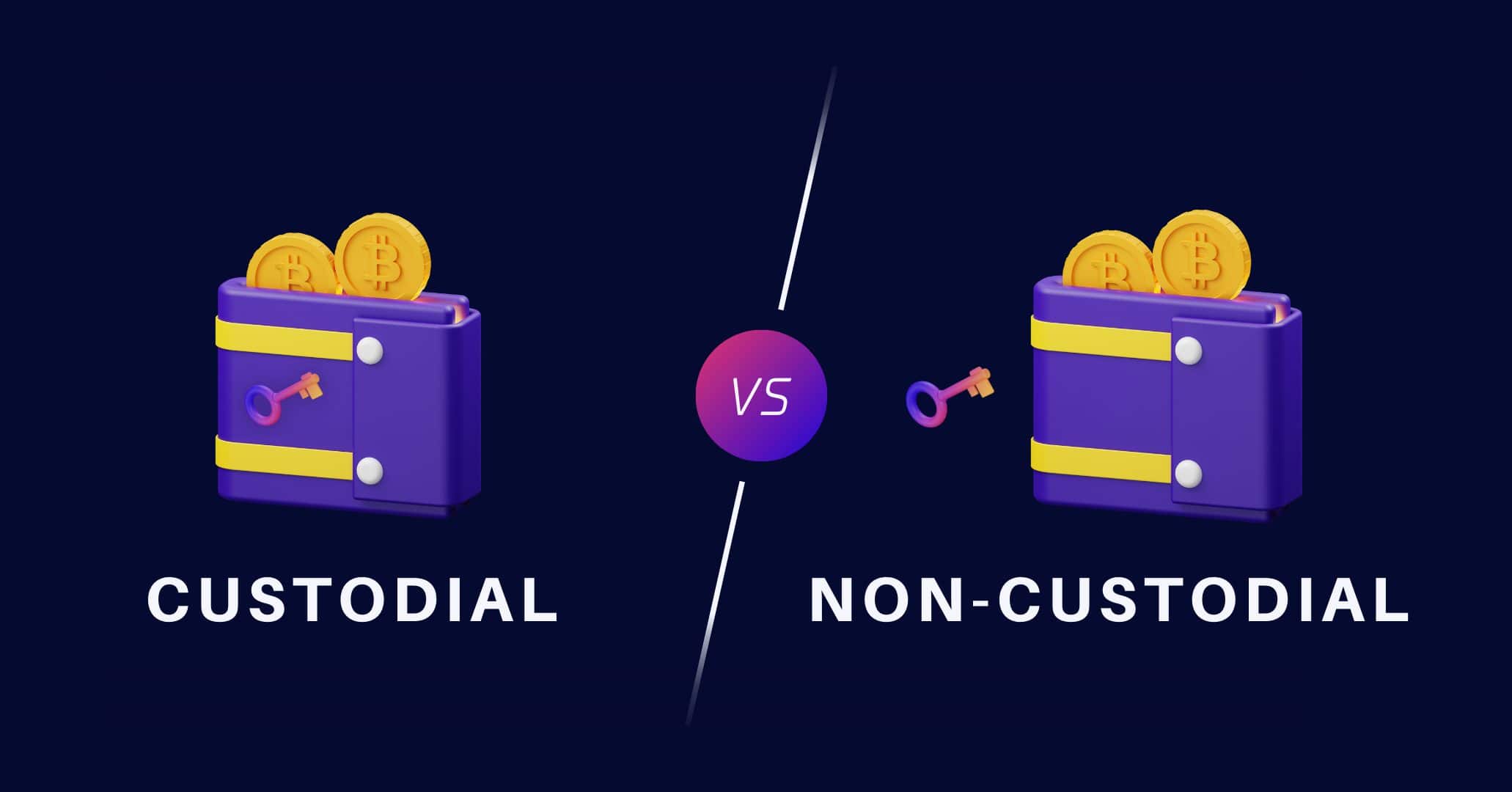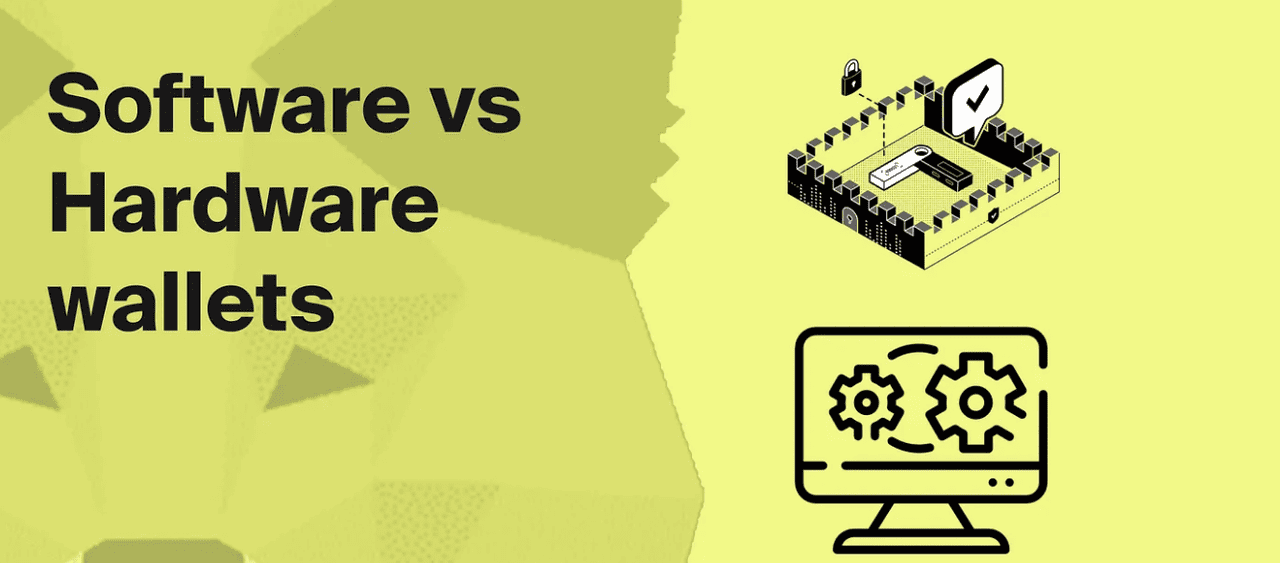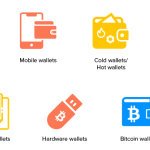Custodial vs Non-Custodial Wallets: Choosing Your Crypto Guardian Wisely
Imagine a fortress for your digital coins. You can either hold the keys or trust someone else with them. This choice sits at the heart of custodial vs non-custodial wallets. Do you go for a custodial wallet, relying on a company’s security, or a non-custodial one, taking control into your own hands? Let’s break down the basics so you can decide with ease. Dive into the world of controlled exchange wallets and the freedom of self-custody. We’ll explore the pros and cons, how your assets stay safe, and what really matters when picking your crypto guardian. Your digital wealth deserves the best protection. Let’s find it together.
Understanding Custodial Wallets: The Basics of Third-Party Crypto Management
The Role of Hosted Wallets in Digital Asset Security
When you pick a hosted wallet, you trust someone else to keep your crypto safe. These are like bank accounts for your digital money. They’re run by third-party services. They hold your wallet private keys for you. This means they have total control. But it also means less work for you. You do not need to worry about losing your keys. They handle wallet backup options too. Even if you forget your password, they can help you get back in.
Let’s talk security. Hosted wallets can be strong fortresses. They use the latest digital wallet security tech. Always choose trusted wallet providers who focus on safety first. The best ones have strong systems to fight hacking. They keep most funds offline, away from online wallet risks. They also follow rules to keep your money safe. This is called compliance.
Pros and Cons of Relying on Exchange Wallets
Many folks use exchange wallets because they’re easy to use. They let you trade and store crypto in the same spot. They’re some types of cryptocurrency wallets that are user-friendly. But, speed and ease come with risks. If the exchange is hit by hackers, your coins could be in trouble. This happened before. Remember, not all companies are the same. Some are better at protecting your coins than others.

On the bright side, these wallets often cost you nothing to use. The company makes money when you trade. Sometimes they might charge small wallet transaction fees. This is for moving your coins around. Still, it’s a small price for convenience.
Also, if you want to spend your crypto like cash, these wallets work well. They hook up with other payment systems. So, when you buy a coffee with Bitcoin, the exchange turns it into dollars for the shop. That’s pretty cool, right?
But, remember this key point: control. When you use exchange wallets, you don’t hold your public and private keys. So, you trust somebody else with your crypto. If they go down, your coins might be stuck or gone.
In short, hosted wallets offer ease and helpful services. Yet, you give up some control over your funds. It’s crucial to choose a good one. And if you can, keep only some of your crypto in these wallets. The rest? Maybe look into a non-custodial wallet, where you’ll be the boss.
Now that you know the deal with custodial wallets, think about how you want to store your coins. What’s your top want? Security or ease? Maybe it’s a bit of both. Either way, your choice will shape how you enjoy the crypto world. So choose wisely. Your digital wealth’s future depends on it.
The Autonomy of Non-Custodial Wallets: Is Self-Custody the Key?
Hardware vs Software Wallets: Choosing the Right Tool for Self-Custody
When you hold crypto, you want it safe. You need a wallet. But which one? There’s hardware and software. Hardware wallets are like safes. They keep your crypto offline. This makes them hard to hack. Great for long-term storage.
Software wallets, on the other hand, live on devices. Your phone, computer, or tablet. They are more convenient. You can send and get crypto quick. But they connect to the internet. So, they can be less secure.

Now, you might ask, “What’s best for me?” That depends. If you trade a lot, go with software. It’s faster. If you hold crypto as savings, pick hardware. It’s safer.
So let’s dive deeper. Think of hardware wallets as your personal vaults. No one touches your crypto but you. They are compact. You can store them in a safe spot. Plus, they are user-friendly nowadays.
Software wallets are like your everyday wallet. Easy to use, always with you. Perfect for daily spending and trades. But, because they’re online, you must watch out. Hackers are always looking for a way in.
The Importance of Wallet Private Keys and Backup Options in Self-Custody
Your private key is like your secret code. No one should ever know it but you. If you lose it, you lose your money. That’s why backup is a must. Write down your recovery phrases. Keep them in a secure place.
What’s a recovery phrase? It’s a list of words given when you set up your wallet. It’s how you get your crypto back if you lose access. You must keep this safe. If someone gets it, they get your crypto. Keep it secret, keep it safe.
Hardware wallets often give you these phrases. You jot them down during setup. Software wallets do too. Write them clearly. Mistakes can cost you.
Losing your phone or hardware wallet isn’t the end. Not if you have your recovery phrase. Remember, with great power comes great responsibility. Being your own bank is powerful. But only if you take security seriously.
In conclusion, self-custody is about freedom and control. It’s having your crypto in your hands. No middle-man. But you must choose wisely. Know the risks. Take steps to protect your digital wealth.
Want freedom and peace of mind? Go with hardware wallets. Love trading and fast access? Choose software wallets. Just remember to keep your keys and backup safe. Your crypto depends on it.
Security in Focus: Protecting Your Digital Wealth
Crypto Asset Security Measures: Hot Wallet vs Cold Wallet Protection
When we talk about types of cryptocurrency wallets, think of hot and cold wallets. Hot wallets are online; they’re handy but less safe. Cold wallets are offline; they’re like a safe. Wallet private keys are secret codes you use to get your money. Hot wallets are good if you use your crypto often. Cold wallets are better if you want to keep your crypto safe for a while.
Decentralized Wallet Advantages: Balancing Convenience with Risk of Hacking
Decentralized wallet advantages include having full control over funds. These are wallets where you’re the boss. No bank or company holds your key, only you. This means no one else can touch your crypto without your key.
But this control comes with a risk of hacking. Bad guys are everywhere, trying to steal keys. So, you must keep your key safe and have a backup option, like writing it down.
To protect against hacking, some use a mix of wallet types. They keep some crypto online for easy use and the rest offline for safety. Blockchain wallet comparison shows it’s like using a wallet for cash and a bank for savings.
Understanding wallet custody is about knowing who has the keys. If it’s you, it’s a self-custody or non-custodial wallet. If it’s a service like an exchange, it’s a custodial wallet. Each has its benefits.
Non-custodial wallets let you own and control your crypto without trusting a third party. Third-party wallet services may be user-friendly, but you rely on someone else.
Let’s zoom in on hardware vs software wallets. Hardware wallets are like fancy USBs and are cold wallets. They keep your crypto offline and are safe from online threats. Software wallets run on your computer or phone and are often hot wallets. They’re easy to access but not as safe as hardware.
With these, public and private keys come into play. Your public key is like your crypto email address, where people send you money. Your private key is like a super-secret password that lets you access that money. It’s your job to keep your private key safe.
Secure crypto storage depends on how well you handle your keys. If you lose them, you lose your crypto. That’s why wallet backup options like writing down your recovery phrases are crucial. They help you get your crypto back if something goes wrong.
Keep in mind that hacking isn’t just a random attack. Big events, like crypto exchange breaches, show that online wallet risks are real. But even with offline wallet benefits, you can’t just set it and forget it. You have to keep your backups safe too.
In short, picking between hot and cold wallets, or hosted and self-custody wallets, depends on how you use your crypto and how much security you want. Stay alert, keep your keys safe, and choose a wallet that fits your crypto life. It’s all about finding the right balance for you.
Making the Right Choice: Factors to Consider When Selecting Your Wallet
Control Over Funds vs Ease of Use: What Matters Most for You?
When you choose a wallet, think about control and ease. Do you want full control over your funds? Or, do you prefer something easy to use?
Types of cryptocurrency wallets vary. Hardware wallets like Ledger or Trezor give you control. No one can touch your crypto without the physical device. Software wallets, though, are more user-friendly. They are apps on your phone or computer. But, remember, ease can come with risks. Online wallets can attract hackers like honey draws flies.
With wallet private keys, it’s all about your freedom to act. You own them in self-custody wallets. But, you have to manage them well. Lose your keys, and your funds vanish, just like a magician’s coin. Keep them, and you call all the shots. Do you feel ready for that?
Remember, the risk of hacking is real when digital wallet security isn’t tight. Non-custodial options make you the boss. But being in charge means you need to play it smart and safe.
Aligning Wallet Selection with Regulatory Compliance and Asset Accessibility
Let’s talk about playing by the rules and getting to your crypto. Hosted wallets, these are the ones exchanges offer, often follow strict rules. They do paperwork, and check who you are. That’s regulatory compliance in action. This might be good news if you like the sound of a system that’s got your back against fraud.
But wait, there’s more. Third-party wallet services, or those hosted wallets, sometimes lock funds. They may do checks or get struck by the law. When this happens, your assets are stuck. You can’t buy, sell, or move them. Frustrating, right? You bet! Now, with self-custody wallets, you’re free to move your crypto as you please. No more waiting for permission.
With asset accessibility, think about how fast you want to get to your crypto. Do you need it now, or can you wait? Hot wallets are connected to the internet. They get you in and out quick, like a rabbit in a hat. But, remember, they are not as safe. Cold wallets, offline ones, keep your crypto sleeping tight away from thieves. But, waking it up takes more time.
In the end, it’s about balance. Decentralized wallet advantages tip towards autonomy, but they mean you’re the one who has to stay sharp. Centralized options might be easier, but they also mean you’re not alone in making decisions. And sometimes, that’s a relief.
It’s like picking a pet. Some prefer a dog, loyal and obedient. Others want a cat, independent and savvy. Which one are you? Crypto storage needs you to decide just that.
Whether you go for a wallet that keeps you on your toes, or one that’s all set up for ease, think long term. Pick the one that fits how you handle your dough, and the level of hustle you can take. Your wallet is your crypto guardian. Choose wisely, and sleep better at night.
In this post, we’ve explored the world of crypto wallets. We’ve seen how custodial wallets offer security through third-party management and weighed the pros and cons of exchange wallets. Next, we looked at non-custodial wallets, comparing hardware with software options and emphasizing the critical role of private keys and backups.
We also delved into how to protect your digital wealth, examining hot versus cold wallet security and the trade-offs between decentralized wallets and hacking risks. Last, we considered key factors in wallet choice, like control versus convenience and compliance with regulations.
Finding the right wallet depends on what you value most. Do you prefer full control, or is ease of use your priority? Whatever you choose, remember: your crypto’s safety rests with the wallet you trust. Choose wisely! Follow Crypto Market Pulse to update more knowledge about Crypto.
Q&A :
What is the difference between custodial and non-custodial wallets?
Custodial wallets are digital wallets where the private keys are managed by a third-party, often an exchange or service provider. In this setup, the user relies on the security and integrity of the company holding their private keys. Non-custodial wallets, on the other hand, grant the user full control over their private keys, meaning the user is solely responsible for the security of their funds.
How secure are non-custodial wallets compared to custodial wallets?
Non-custodial wallets are generally considered more secure in terms of user control because the user holds the private keys. This means there’s less risk of a third-party being hacked or mismanaging the funds. However, the security also heavily depends on the user’s ability to safeguard their keys. Custodial wallets may offer more user-friendly security features but carry the risk of the custodian being targeted by attackers.
What are the benefits of using a custodial wallet?
The main benefits of using a custodial wallet include convenience, ease of use, and often enhanced customer support. Custodial wallets are usually more accessible to beginners and may offer additional services such as exchanges, lending, or staking. They can also provide account recovery services in case a user loses their password, something that is not possible with non-custodial wallets.
Can I switch from a custodial to a non-custodial wallet?
Yes, it is possible to switch from a custodial to a non-custodial wallet. To do so, you’ll need to transfer your funds from the custodial service to an address that is controlled by your non-custodial wallet. It’s essential to research and understand the process thoroughly to ensure that you don’t lose access to your funds during the transfer.
Which type of wallet is better for beginners, custodial or non-custodial?
For beginners, a custodial wallet might be more appropriate due to its simplicity and convenience. Such wallets often provide a more straightforward user experience with less responsibility on the user for security. However, as users become more comfortable with cryptocurrency and desire more control over their assets, they may prefer the autonomy offered by non-custodial wallets. It’s important for beginners to understand the trade-offs between security and convenience when choosing a wallet.



